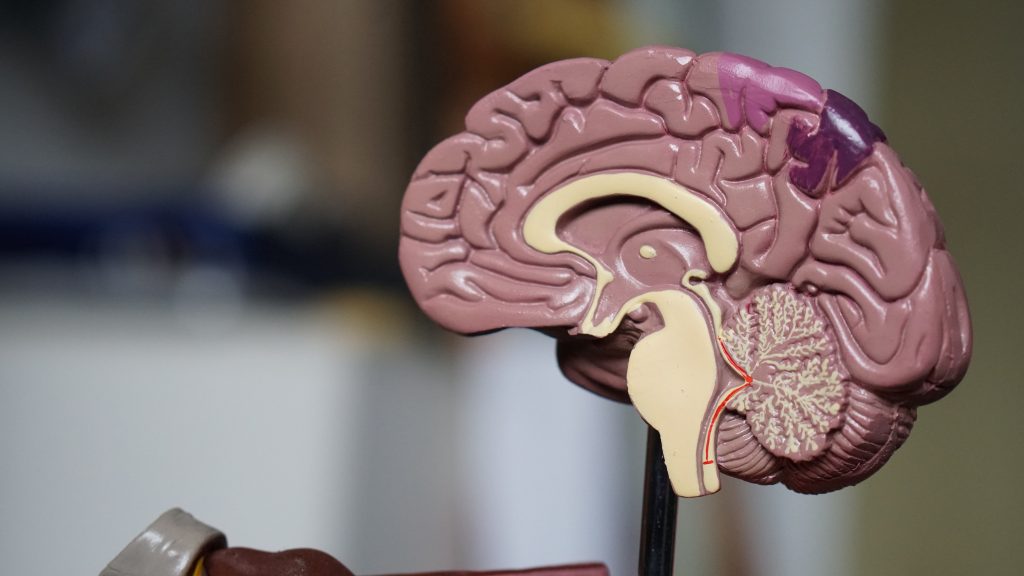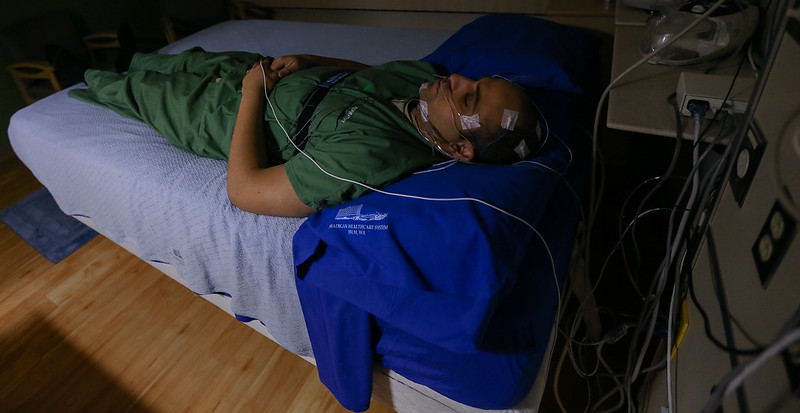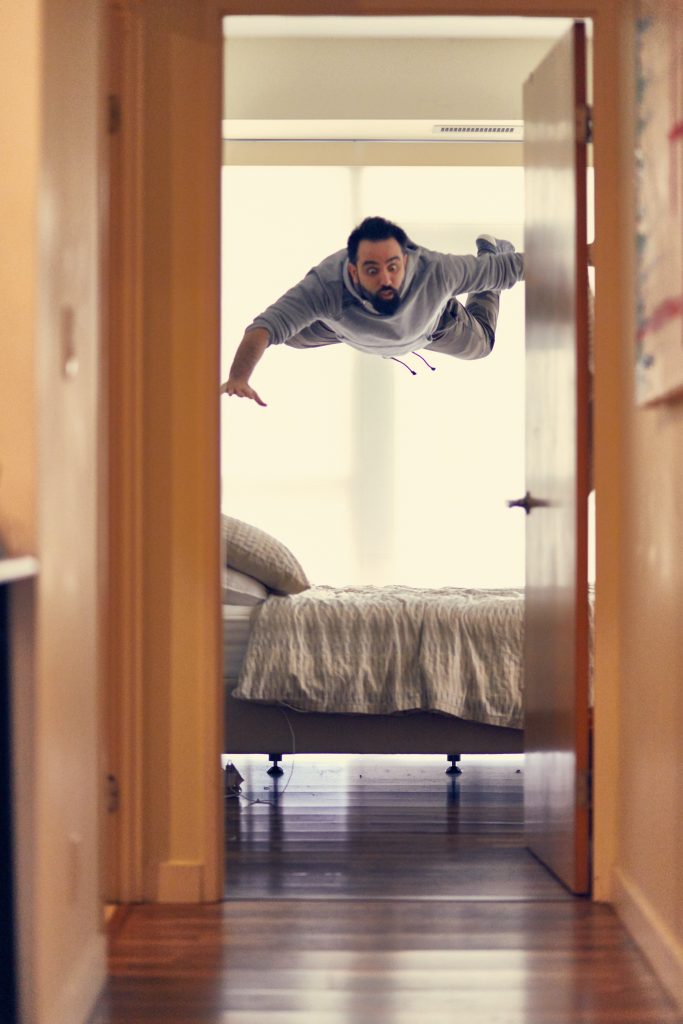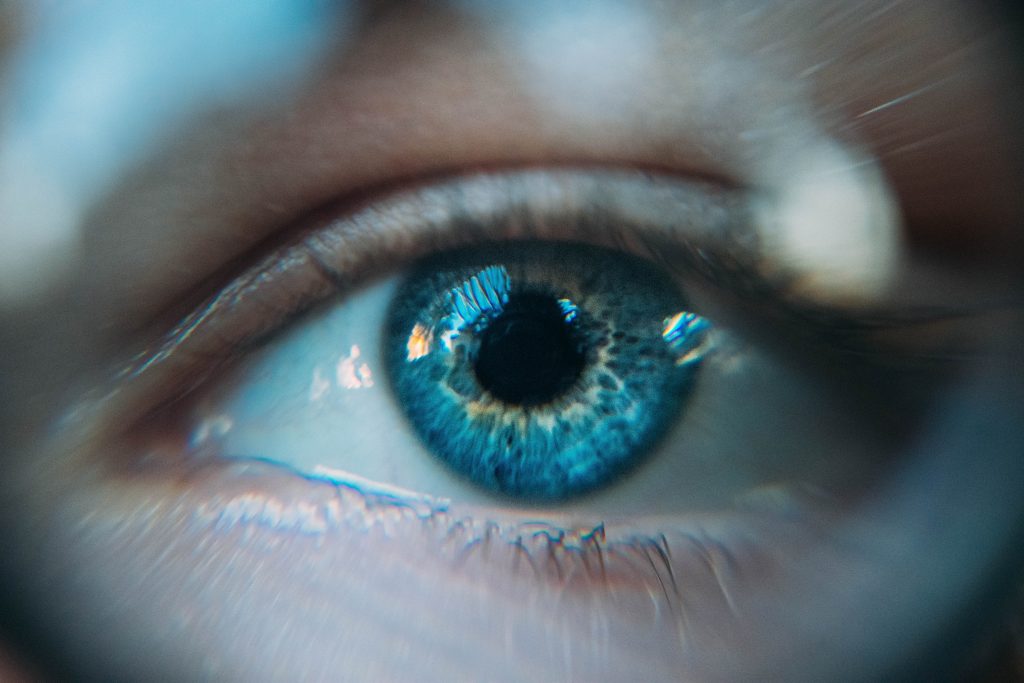
Why do we dream, and what benefits does dreaming have on our health? Julia Marino explains why dreaming could be the next frontier of wellness.
More and more experts these days tell us that optimal wellness starts with good-quality sleep – but what about dreaming? It’s now believed that dreams play a role in helping us to build new connections in our brains that enable better physical, mental and emotional health. It’s like our mind gets a chance to reboot its proverbial hard drive, processing past interactions and memories to make space for new, more valuable information in the future.
Although there is still much mystery surrounding why we dream, we do know this: Regardless of how conked-out our bodies appear – or how strange our dreams feel – our minds are hard at work.
What happens when we dream?

Vivid dreaming generally occurs in the state of sleep called REM, or “rapid eye movement”. In REM, our heart beats faster, our eyes twitch rapidly, and the breath quickens and becomes more erratic. When we get a total of eight hours of sleep, we can cycle in the REM four or five times – about two hours of potential dream-making time. Scientists believe we spend about a third of our lives sleeping, so imagine the thousands of dreams we make in a lifetime!
During REM, the brain’s two hemispheres are in-sync and communicate actively with each other. The amygdala and cingulate cortex, known as the deep emotional centres, go into overdrive and are up to 30 percent more active than when we’re awake, leading researchers to believe that deep emotional processing might occur while dreaming.
In contrast, the prefrontal cortex, the part of our brain responsible for reasoning, actually slows down, and can’t differentiate between what’s real and what’s not. This could explain why so many of our dreams seem nonsensical and why we don’t seem to question the weird things that happen while we’re dreaming.
Meanwhile our brain stem relaxes the muscles in our arms and legs. Think of this as nature’s brilliant way of preventing us from acting out the bizarre scenarios our brains cook up to clear out the cobwebs!

“REM sleep is quite important as it has various functions,” says Nivedita Ramanujam, head of corporate psychology at the Hong Kong-based London Medical Clinic, and a trauma specialist. “It helps to improve neural connectivity as we sleep, which is an important aspect of mental wellbeing [in our waking hours]. It’s also a time when the brain is able to learn and organise certain memories together in a composite way that helps our long-term memory.”
Why are dreams so weird?
Why we dream is a controversial topic and the neuroscience field is saturated with hypotheses. One professor at Tufts University, Erik Hoel, Ph.D., proposed a new theory of dreams called the overfitted brain hypothesis, which suggests that notably bizarre dreams help us to process our experiences in a way that enables deeper learning.
Read more: The Best Infant Sleep Sacks for Hong Kong Weather
Another researcher, Dr. Erin Wamsley, an associate professor of psychology and neuroscience at Furman University in South Carolina, believes that dreams not only reflect multiple memories we already have, but also anticipate probable future events.
Wamsley’s research team asked 48 students to spend the night in a sleep lab so that they could measure how often they were in deep REM sleep. The students were awakened multiple times and asked to report what they were dreaming about and what may have inspired their dreams.

They found that more than half of the dreams reported were tied to a specific memory, while another 25 percent were related to upcoming events in the subjects’ lives. Though they are rarely depicted realistically in our dream-state, future-oriented dreams actually become more common later in the night, possibly driven by the proximity to the next day’s events.
Wamsley’s “episodic future simulation” hypothesis suggests that dreams draw both from waking thought and fragments of past experience to simulate imagined scenarios related to anticipated future events.
In another study using a method called “dream incubation,” Dedra Barret, a dream researcher at Harvard University, asked college students to write down a problem they wanted to solve on a piece of paper and place it next to their beds. Once in bed, they focused their attention on the problem and visualised a concrete image connected to it. After a week of repeating these exercises, about half recalled a dream related to their problem, and the majority felt that the dream offered a solution.
“Dreams are thought to be the result of our minds trying to process the day’s memories during REM sleep and then storing them away,” Ramanujam says. “If your mind is also preoccupied with thoughts of future events, then it is quite possible that these will become part of the processing during REM sleep. This tells us that many of our unconscious fears and thoughts can also manifest in our dreams.”
Is it important to remember our dreams?
I often remember my dreams, many of which are lucid, or when you are aware that you are dreaming.
This is because high dream-recallers like me often wake up for brief periods of time during the night – what’s known as “micro awakenings.” When the brain wakes up, the processes for storing memories are activated. If you awaken during or shortly after REM, you are more likely to remember your dreams.

“Generally speaking, one has to wake up within five minutes of the dream to be able to remember it,” says Ramanujam.
Chances are that most of us have dreams of being chased, falling, our teeth falling out or showing up to work naked. As distressing as dreams like this can be, they are totally normal.
Dr. Joëlle Touchette Bradford, a naturopathic physician at
the Integrated Medicine Institute (IMI), says it’s what we do with our dreams and the emotions they elicit that really matters. She recommends using dream journaling and therapy as a way to better understand one’s internal state.
“What can you do with your dream information that is practical and helpful to your situation?” Bradford asks. “I keep a dream journal, which helps me to both recall my dreams more easily and help me to grow from them.”
Bradford describes having dreams that were comforting, like her husband hugging her, but others that were difficult for her to process. “I started to have recurring, vivid dreams of forgetting my son Jackson on the moon, and I would wake up in this absolute panic,” she says.
“I could look that up in a book about dreams and their meanings, and it would probably say that I’m worried about my son,” she continues. “That’s obvious and not very helpful or practical. But acknowledging the feelings I’m waking up with and then journaling about them – it’s a form of therapy.” Whatever it is that you are feeling, says Bradford, hold space for it – especially in the morning.
“Dreams give us clues. They may not be comfortable or pleasant, but honouring and giving space to those emotions helps us to grow as human beings.”
Can you use dreams to heal?

One of the key techniques used by Ramanujam in her trauma therapy practice is EMDR, which stands for “eye movement, desensitisation & reprocessing”. EMDR has a strong link to dreams because it incorporates the use of eye movements while processing traumatic memories, which helps to decouple the emotion from the memory itself.
These eye movements are akin to the same lateral eye movements during REM sleep, the phase of sleep that processes our daily experiences and stores them away in our memory.
If those memories are traumatic, then depending on the level of trauma, they may be locked away as a protection mechanism. It has also been theorised that nightmares occur when the mind attempts to process such memories during REM sleep.
“EMDR can be used to unlock and resolve traumatic memories, and thus eliminate nightmares,” says Ramanujam, adding that EMDR therapy has also helped some of her patients to recover lost or repressed memories.
Even if you’re not suffering from trauma or nightmares, however, dreams still may hold an important key to your overall well being.

“Better dreams are related to better sleep, and a better quality of life and mental health,” says Ramanujam. “We should be aiming to go through all the various phases of sleep, undisturbed.”
By adopting healthy habits and training ourselves to sleep better, we can also expect an improvement in the quality of our dreams, allowing us to be more present, happy and healthy in our waking hours.
Read more: 7 Things You Can Start Working On Now To Age Well Later







